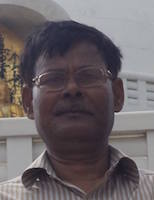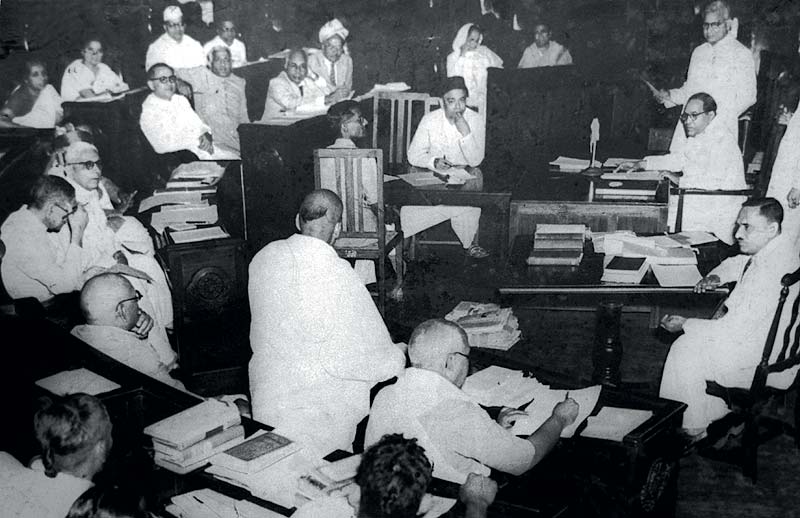Just as Communism and Karl Marx are synonymous with one another so are Tyagmurti (Epitome of sacrifice) R.L. Chandapuri and Backward class movement. This great man discovered a new India by reinventing the tremendous creative power of the Shudras and thus added a new chapter to Indian history. He had to face many murderous assaults but despite sustaining serious injuries, he always succeeded in vanquishing death and continued his mission of inculcating a feeling of love and harmony between humans by ending discrimination and bringing about social justice
– Prof Dr Stephen Henningham, Australia
Ram Lakhan Chandapuri included all Dalits, OBCs and minorities in the backward classes. He launched a struggle against the brahmanical system and fought for the country’s independence at the national level. This war for the liberation of the Backwards, despite many ups and downs, continues to determine the direction of the sociopolitical change in the country even now. He played a decisive role in this battle. Chandapuri was born in village Basuhar of Patna district on 20 November 1923. His parents were peasants and hailed from the Kurmi caste. His father’s name was Mahavir Singh and his mother’s, Hiramani Kunwar. He was only in Class IX when he joined the Freedom Struggle. He courageously defended the Muslims during the Noakhli riots in 1946. When Mahatma Gandhi came to Masaudi in connection with his peace mission, he profusely praised the young Chandapuri.
The upper castes did not consider only the Untouchables as lowly and despicable; in their eyes, the OBCs were also lowly Shudras. They hated the OBCs and used to refer to them as the ‘Nanh caste’ or ‘Solkand’. People from the backward classes were not allowed to sit on the cots in upper-caste homes. Whenever an upper-caste person passed by, the Shudras stood up in fear-induced respect. Young Chandapuri was deeply perturbed by the humiliating behaviour of the upper castes towards the Backwards. In association with some Freedom Fighters belonging to the backward classes, on 10 September 1947, he founded the Bihar Prantiya Picchdi Jati Sangh (Bihar Province Backward Castes Asssociation), which, subsequently grew into Akhil Bharatiya Picchda Varga Sangh (All-India Backward Class Association) and its branches were established in almost all states.

In his book, Dominance and State Power in Modern India: Decline of a Social Order, Francine R. Frankel writes that R.L. Chandapuri, the executive president of Bihar Rajya Picchda Varg Sangh, expounded the objectives and programmes of the organization in great detail. In 1949, he began publication of a Hindi weekly called Picchda Varg (Backward Class). His speeches and articles published in the magazine generated awareness among the backward castes residing in the rural areas. He wrote, “Whenever a revolution takes place in India, it will be led by the members of the backward classes and the downtrodden.”
Chandapuri bachelor’s degree and a degree in law. He was invited to New York University, USA, for the MA and PhD programmes in Public Administration. His stay in the US was to be sponsored by the government and he was to leave for the US in 1949. He had completed all preparations for his departure and had appointed a new president of Picchdi Jati Sangh. Just then, an unfortunate incident took place. In Jeeradei, the ancestral village of country’s first president Dr Rajendra Prasad, in Ekma police station area in Chhapra district, Chulahi Sahu, an active leader of the sangh was assaulted. He was a self-respecting, prosperous farmer and businessman of the Teli community. In community feasts in the village, the Untouchables and the Shudras (Dalit-OBCs) not only had to sit separately but also had to remove their used pattaal-dona (plates made of leaves) themselves. To assert the self-respect of these people, Chulahi Sahu organized a feast in his home and invited the Backwards as well as the Untouchables of the area. With the objective of persuading the Dalits and OBCs to banish untouchability from their minds, all the guests were seated together. After the feast, they hugged each other and decided that they would hold similar feasts in other villages.
The upper castes saw took this as an insult and to teach Chulahi Sahu a lesson, on the very next day, some savarna (upper-caste) youth caught hold of him and severed both his ears using a sharp-edged weapon. They threatened to burn down his house if he organized any more of those functions. As the news of the incident spread, people from the backward castes of the surrounding villages gathered at Sahu’s house. The Chhapra District Picchdi Jati Sangh leaders advised patience but the youths of the backward classes were uncontrollable. They took the wanton assault on Sahu as a challenge. They surrounded the house of the person who had severed Sahu’s ears. As he was not at home, they caught hold of his father and severed both his ears. The news of the incident spread in the entire district like wildfire. The police, who had turned a blind eye to the atrocity perpetrated on Chulahi Sahu, got cracking. Sahu was arrested and thrown behind bars. He was tried by a court. Though Chandapuri and Shivdayal Singh Chaurasia, president of Uttar Pradesh Picchdi Jati Sangh, stoutly defended Sahu in the court, their pleas fell on deaf ears. Sahu was sentenced to four years’ imprisonment. He died soon after he was released from jail. This incident hurt Chandapuri so deeply that he dropped the idea of going to the USA and plunged himself into the work of organizing the backwards.
Right from the time of formation of the Constituent Assembly, under the banner of Picchda Varga Sangh, Chandapuri struggled relentlessly for ensuring that special provisions were made in the Constitution for the Backwards and for incorporation of Article 340 in it. He also worked for the appointment of Backward Classes Commission and for the implementation of its recommendations. He was in constant touch with the members of the Constituent Assembly and Dr Ambedkar. Starting in 1952, he worked for securing reservation for the Backwards in Bihar. It was due to the powerful and aggressive movement led by him that in 1977, then Bihar chief minister Karpoori Thakur introduced reservation for the OBCs. All his life he worked for the betterment of society. He wanted to enter the legislature and join the government through elections but his endeavours did not meet with success.
This dedicated social worker and revolutionary messiah breathed his last in 2004 at the age of 81 years. He was a great admirer of the movements led by Dr Ambedkar and Dr Lohia. He was of the view that if the Dalits and OBCs forged an alliance, power would fall into their lap without much effort. He made efforts to this end and in 1951, invited Dr Ambedkar to address a huge public meeting at Patna’s Gandhi Maidan.
Published in the July 2013 issue of the Forward Press magazine






